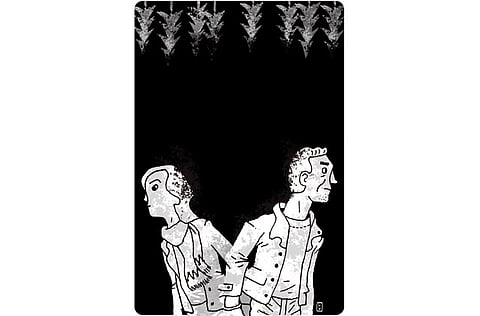Full Dark, No Stars: Compelling aftertaste
Some of the stories play on the mind, the others linger there and fester. But none fails to satisfy

Novellas are an odd form of writing and there is no love for them in publishing. They are the wrong size. You need about four of them to make a standard-sized book.
It has been almost 30 years since Stephen King's first set of four novellas, Different Seasons, four stories written in the golden dawn of his career. They were mostly fantasy-free and three of them were filmed (as Stand By Me, The Shawshank Redemption and Apt Pupil). They were sharp, smart, dark stories of a perfect length to film — longer than the short stories King had written for men's magazines early in his career, shorter than the blockbuster novels he had started to carve out following the success of Carrie (which was itself a novella, padded out to novel length with commentary on the events of the book).
It has been 20 years since Four Past Midnight, from King's hazy afternoon period. Another four stories, less remarkable (one film, Secret Window, one TV special, The Langoliers).
Now in the evening of his immense career, we get Full Dark, No Stars.
King in novella form tends to avoid or downplay the supernatural. 1922, the opening story, is simply as good as anything he has done. Wilfred Leland James, a small farmer in Nebraska, murders his wife, having first talked his 14-year-old son into helping him. "I cozened him into it, playing upon his fears and beating down his quite normal objectives over a period of two months," James tells us. "This is a thing I regret even more bitterly than the crime, for reasons this document will show."
And show us he does. The murder of his wife and the disposal of her body in a well is only the beginning: the consequences — for James, for his son and for their neighbours — are far-reaching, monstrous and inevitable. It is compulsive reading, sometimes scary, revolting and ultimately heartbreaking, and King tells it in a precise manner that is far from his usual voice. There is a hint of the supernatural in it, although the borderline between a haunting and madness here is a hairline fracture, one that King exploits elegantly all the way to the end.
Big Driver, the second novella, is told in King's usual voice: It is easy, comfortable reading, deceptively so. Like many of his stories, it features a writer, in this case Tess, author of a series of uninspired mysteries, who has just driven to give a talk to a small-town book club. On her way home, she is sent on a short cut and almost murdered by the eponymous "big driver". An efficient revenge fantasy, this was the only story in which the beats were predictable and, for me, the least satisfying. I took the most pleasure in the snapshot of contemporary America in the background.
The final novella, A Good Marriage, is a simple idea perfectly told. Darcy Anderson has been married to her husband Bob, an accountant and coin collector, for almost 30 years. Bob is off on a business trip. In the garage that night, Darcy finds a box containing evidence that tells her that Bob might be a serial killer. But Bob is coming home.
These are stories of retribution and complicity, of crimes that seem inevitable, of ways that we justify the world to ourselves and ourselves to the world.
In his afterword, King states that he wanted the stories to linger in the imagination. And they do. They linger, and perhaps sometimes even fester. But they are never less than satisfying and are fine stories to take with us into the night.
- Neil Gaiman's The Graveyard Book is published by Bloomsbury.
- Full Dark, No Stars ,By Stephen King, Scribner, 384 pages, $27.99


